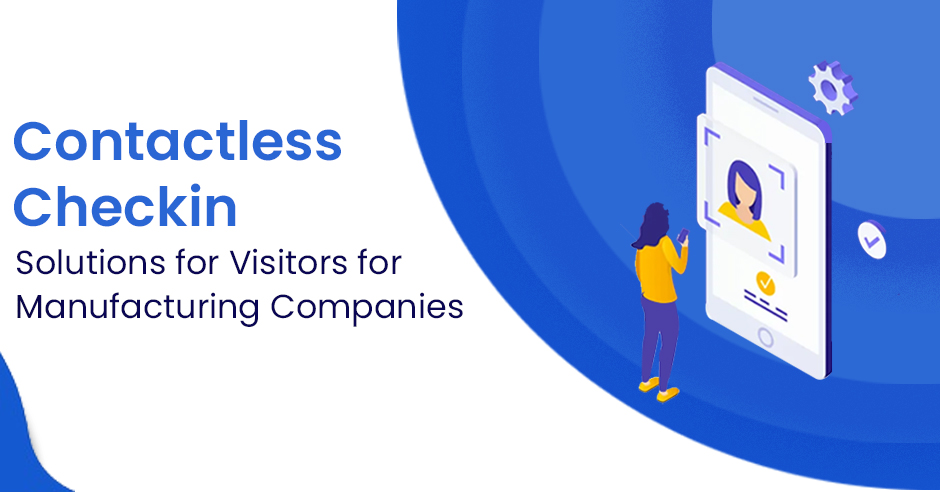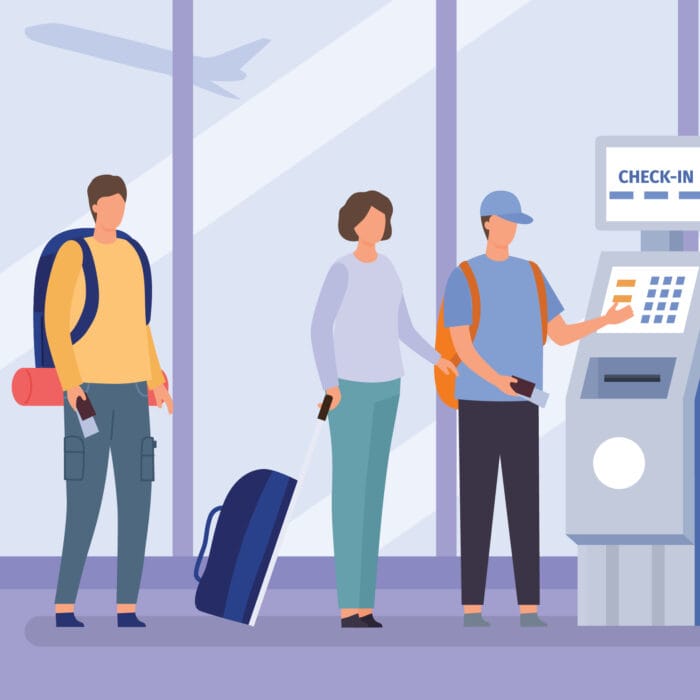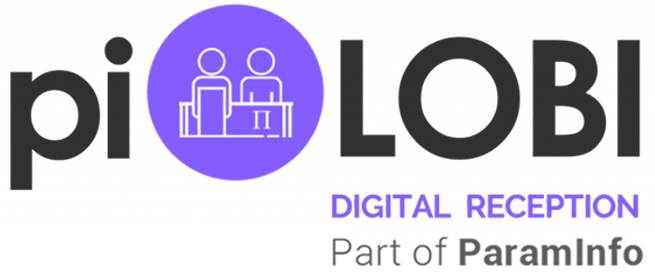
Contactless Check In Solutions for Visitors for Manufacturing Companies
The COVID-19 pandemic has sent the world into an unprecedented frenzy. With all the industries affected by the lockdown scenario, the reopening of company spaces has been a tough situation to deal with.
This is especially true for manufacturing companies, where their manufacturing plants must have optimum safety precautions put in place to avoid any outbreak of the virus. One of the most effective ways to ensure this is by being socially distant and practicing minimum contact. Hence, putting good use to visitor check-in systems, manufacturing companies have been able to effectively reopen while also maintaining proper safety precautions. Let’s take a deep dive into how visitor check-in software is helping manufacturing companies in properly maintaining minimum human contact.
Going Touchless with Check-Ins:
One of the primary advantages of a visitor sign-in software is that it is helping manufacturing companies in recording check-ins of their staff digitally, as opposed to the “pen and paper” approach. Not only is it beneficial in potentially avoiding any spread of the virus within the premises, but also in helping the staff and visitors maintain proper social distancing.
A smart visitor sign-in system comes equipped with Radio-frequency identification (RFID) features, which are helpful in achieving not only contactless check-ins, but much more. With RFID, manual registering goes straight out the gate and presents manufacturing companies with the option to seamlessly track visitors and staff on-premises.
The concept of advance notification of arrival, RFID based on-premises tracking, and monitoring activities of all the visitors and staff are all possible and implementable through visitor check-in systems now.
Convenient Meet Ups Without Contact:
Visitor check-in systems are not only useful in check-ins, but also scheduling meetings. Employees are able to conveniently set up meeting requests with the management or fellow staff members via the employee portal in the system. This helps in maintaining a streamlined communication between the staff and management, while simultaneously avoiding any unnecessary contact.
Geo-Fencing – Smart Location Intelligence:
One of the biggest advantages of the RFID implementation in visitor check-in systems is the ability of geo-fencing the visitors and staff. Geo-fencing is basically a feature that allows staff and visitors to access certain areas of the premises using their visitor or staff badges.
This feature allows manufacturing companies to provide staff access to only areas that are concerned with their job responsibilities so that they are not wandering around in areas they’re not required in. It is a very helpful feature in also segregating the departments in the manufacturing companies, so there are no interruptions in the operations as well.
Defining the accessibility of areas in manufacturing companies ensures that visitors are not able to spread the virus on the premises as well, and are only in the areas where they can be monitored and observed. This is especially important considering the fact that visitors are more prone to spread or contract the virus than the staff.
Seamless Screening for Visitors:
While offering contactless check-in solutions for visitors is a very aiding step in preventing the spread of the virus, it is also helpful to be extra cautious before letting visitors enter the premises. Hence, visitor check-in systems also come equipped with remote registration.
The remote registration feature allows manufacturing companies in capturing relevant health and safety-related data of the visitors to determine if they clear the criteria of optimum health standards to enter the premises of the company.
Each company has its own protocols for health and safety, hence, the registration forms with questionnaires that include relevant questions such as “have you been in a high-risk zone recently?” or “are you experiencing any symptoms of the common flu?” can be very helpful. This can be taken forward even further, by assigning unique QR codes to the visitors’ badges, which can be integrated in the workflow of the visitor check-in systems.
Regulatory Compliances – Even More Important Now:
While following compliances was a necessary aspect for manufacturing companies previously, they are even more relevant now considering the new health and safety standards introduced. This can be seamlessly accommodated by visitor sign-in systems that can implement the compliances for visitors in the registration stage of check-ins.
During the screening and registration process, the data retention period of the visitors can be automated and shared with the concerned authorities in case of any detection of symptoms. This feature not only helps in detecting any potential carriers of the virus beforehand but also provides the company with the power to disapprove of these visitors’ entry before they even arrive.
Conclusion
With the reopening of manufacturing companies and safety being the biggest priority, maintaining proper precautions is the only way companies can ensure optimum productivity and employee trust. Visitor check-in systems like piLOBI have been playing a crucial role in this, with not only offering contactless check-in solutions for the visitors, but also ensuring multiple other precautions.










